Density
Density is a measure of the amount of mass in a given volume of a substance. It is a fundamental property of matter and can be calculated using the formula:
center;">Density (D) = Mass (m) / Volume (V)
Where:
- Density (D) is measured in units such as g/cm3 or kg/m3
- Mass (m) is measured in units such as grams (g) or kilograms (kg)
- Volume (V) is measured in units such as cubic centimeters (cm3) or cubic meters (m3)
Factors Affecting Density
The density of a substance can be affected by its temperature and pressure. In general, as the temperature of a substance increases, its density decreases, and as the pressure increases, the density also increases.
Applications of Density
Density is an important concept in various scientific fields and everyday life. Some applications of density include:
- Determining the purity of substances
- Identifying unknown substances
- Designing and constructing objects, such as boats and aircraft, to ensure they float or fly
- Understanding geological processes, such as the formation of rock layers
Study Guide
To understand and master the concept of density, consider the following study guide:
- Learn the formula for calculating density and practice solving problems using the formula.
- Understand the relationship between mass, volume, and density.
- Explore real-life examples and applications of density in different fields.
- Experiment with different substances to observe how their densities vary.
- Review the factors that can affect the density of a substance, such as temperature and pressure.
◂Biology Worksheets and Study Guides High School. Human biology II
Worksheet/Answer key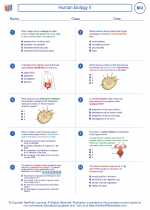 Human biology II
Human biology II  Worksheet/Answer key
Worksheet/Answer key Human biology II
Human biology II  Worksheet/Answer key
Worksheet/Answer key Human biology II
Human biology II  Vocabulary/Answer key
Vocabulary/Answer key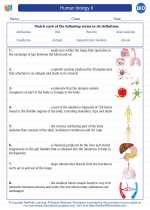 Human biology II
Human biology II  Vocabulary/Answer key
Vocabulary/Answer key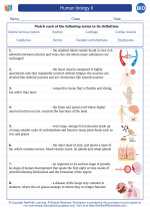 Human biology II
Human biology II  Vocabulary/Answer key
Vocabulary/Answer key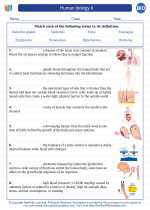 Human biology II
Human biology II  Vocabulary/Answer key
Vocabulary/Answer key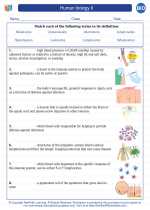 Human biology II
Human biology II  Vocabulary/Answer key
Vocabulary/Answer key Human biology II
Human biology II  Vocabulary/Answer key
Vocabulary/Answer key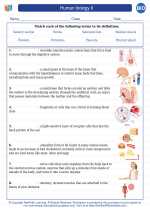 Human biology II
Human biology II  Vocabulary/Answer key
Vocabulary/Answer key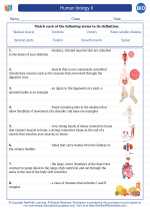 Human biology II
Human biology II 

 Worksheet/Answer key
Worksheet/Answer key
 Worksheet/Answer key
Worksheet/Answer key
 Vocabulary/Answer key
Vocabulary/Answer key
 Vocabulary/Answer key
Vocabulary/Answer key
 Vocabulary/Answer key
Vocabulary/Answer key
 Vocabulary/Answer key
Vocabulary/Answer key
 Vocabulary/Answer key
Vocabulary/Answer key
 Vocabulary/Answer key
Vocabulary/Answer key
 Vocabulary/Answer key
Vocabulary/Answer key

The resources above cover the following skills:
LIFE SCIENCE (NGSS)
From Molecules to Organisms: Structures and Processes
Students who demonstrate understanding can:
Develop and use a model to illustrate the hierarchical organization of interacting systems that provide specific functions within multicellular organisms.
Plan and conduct an investigation to provide evidence that feedback mechanisms maintain homeostasis.